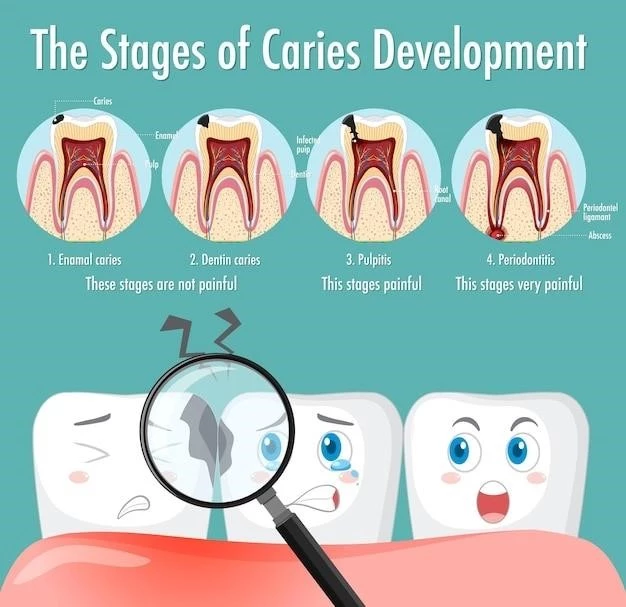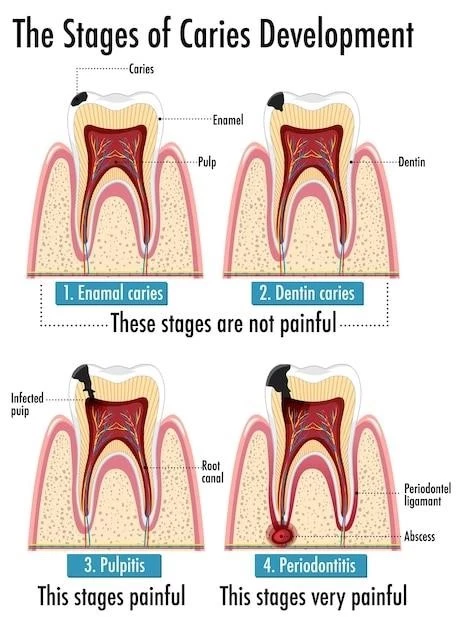Get an insightful overview of Charcot-Marie-Tooth Disease, understanding its symptoms, causes, diagnosis, treatment, and management strategies.
Understanding Charcot-Marie-Tooth Disease
Charcot-Marie-Tooth Disease (CMT) is a group of inherited nerve disorders affecting the peripheral nerves, leading to muscle weakness and sensory loss. The condition is characterized by progressive damage to the peripheral nerves, which control movement and sensation in various parts of the body.
CMT can manifest in different ways, including muscle weakness in the feet and lower legs, foot deformities, difficulty walking, and loss of sensation in the extremities. The disease can impact daily activities and quality of life, requiring ongoing management and support.
Understanding the mechanisms of CMT at a genetic level is crucial for targeted treatment and ongoing research efforts. Genetic testing and counseling play a key role in identifying specific genetic mutations associated with CMT subtypes, aiding in personalized care and management strategies.
Individuals with CMT may benefit from a multidisciplinary approach to care, involving neurologists, physical therapists, occupational therapists, and other healthcare professionals. Developing a comprehensive treatment plan tailored to the individual’s needs is essential for managing symptoms, improving function, and enhancing overall well-being.
As research continues to advance, new insights into the pathogenesis of CMT and potential therapeutic targets emerge, offering hope for improved treatment options and ultimately a better prognosis for individuals living with this challenging condition.
Symptoms of Charcot-Marie-Tooth Disease
Recognize the signs of Charcot-Marie-Tooth Disease such as muscle weakness, foot deformities, difficulty walking, and loss of sensation in the extremities. Early identification is key.
Recognizing Symptoms
Recognizing the symptoms of Charcot-Marie-Tooth Disease (CMT) is crucial for early intervention and management. Common signs include muscle weakness, particularly in the legs and feet, leading to difficulties with walking and balance. Foot deformities such as high arches or hammertoes may also be present.
Individuals with CMT often experience loss of sensation in the extremities, making it challenging to feel temperature changes, pain, or touch. This sensory loss can increase the risk of injuries and other complications. Additionally, muscle atrophy and decreased muscle mass may occur, affecting strength and mobility.
Progressive symptoms of CMT can impact daily activities and quality of life, necessitating specialized care from healthcare providers familiar with the condition. By promptly recognizing and addressing the symptoms of CMT, individuals can benefit from tailored treatment plans, adaptive devices, physical therapy, and other supportive measures to help manage the disease effectively.
If you or a loved one notice any of these symptoms, it is essential to seek medical advice for proper evaluation, diagnosis, and appropriate management strategies. Early detection and proactive care can make a significant difference in maintaining function and enhancing well-being in individuals living with Charcot-Marie-Tooth Disease.
Causes of Charcot-Marie-Tooth Disease
Understand the underlying genetic causes of Charcot-Marie-Tooth Disease, a group of inherited nerve disorders affecting the peripheral nerves, leading to muscle weakness and sensory loss.
Exploring the Causes
Charcot-Marie-Tooth Disease (CMT) is primarily caused by genetic mutations affecting the peripheral nerves’ structure and function. These mutations lead to abnormalities in the myelin sheath, which insulates and protects nerve fibers, or the axon, the nerve fiber itself.
Specific genes associated with CMT play a crucial role in nerve signal transmission, maintenance, and repair. Mutations in these genes disrupt the normal processes, resulting in progressive nerve damage and impaired communication between the brain and muscles.
While CMT is primarily a genetic disorder, certain environmental factors and lifestyle choices may influence the condition’s progression and severity. Understanding the interplay between genetic predisposition and external factors can provide insights into personalized treatment approaches and risk management strategies.
Exploring the causes of CMT involves genetic testing, familial history assessment, and comprehensive evaluations to determine the specific gene mutations and their implications. By delving into the underlying genetic factors contributing to CMT, healthcare providers can tailor interventions to address individual needs, optimize care, and enhance overall outcomes for patients living with this complex neurological disorder.
Diagnosis and Treatment of Charcot-Marie-Tooth Disease
Learn about the diagnostic process and management strategies for Charcot-Marie-Tooth Disease to improve quality of life and functional abilities.
Diagnostic Process and Management
The diagnosis of Charcot-Marie-Tooth Disease typically involves a comprehensive evaluation by a neurologist, including a thorough medical history, physical examination, and specialized tests such as nerve conduction studies and genetic testing.
Once diagnosed, the management of Charcot-Marie-Tooth Disease focuses on symptomatic treatment to address specific symptoms like muscle weakness, foot deformities, and sensory loss. Physical therapy and orthopedic devices may help improve muscle strength, mobility, and balance.
Regular monitoring and follow-up appointments are essential to track disease progression and adjust treatment strategies accordingly. Collaborating with a multidisciplinary healthcare team can provide comprehensive care and support, including genetic counseling for individuals and families.
While there is currently no cure for Charcot-Marie-Tooth Disease, ongoing research aims to develop targeted therapies addressing the underlying genetic mechanisms of the condition. Engaging in clinical trials and staying informed about advancements in treatment options can offer hope for improved outcomes and quality of life for individuals living with Charcot-Marie-Tooth Disease.
Charcot-Marie-Tooth Disease Type 4A
Discover important information about Charcot-Marie-Tooth Disease Type 4A, including its unique characteristics, symptoms, and management strategies.
Understanding Type 4A
Charcot-Marie-Tooth Disease Type 4A is a specific subtype of CMT characterized by early onset, severe symptoms, and rapid progression. This form of the disease is caused by mutations in the GDAP1 gene, which plays a role in maintaining mitochondrial function and nerve cell health.
Individuals with CMT Type 4A may experience pronounced muscle weakness٫ sensory abnormalities٫ and foot deformities from a young age. The degeneration of nerve cells in this subtype can lead to significant functional impairment and mobility challenges.
Management of Charcot-Marie-Tooth Disease Type 4A often involves a multidisciplinary approach, including physical therapy, orthopedic interventions, and assistive devices to support daily activities. Genetic counseling is essential for individuals and families to understand the hereditary nature of this subtype and its implications for future generations.
As research continues to advance, targeted treatments and personalized therapies may offer hope for managing the symptoms and improving the quality of life for those affected by Charcot-Marie-Tooth Disease Type 4A. Staying informed about new developments and connecting with healthcare professionals specializing in CMT can provide valuable support and guidance for individuals navigating this challenging condition.

Genetic Factors in Charcot-Marie-Tooth Disease
Explore the genetic influences behind Charcot-Marie-Tooth Disease, understanding how specific gene mutations contribute to this inherited nerve disorder.
Genetic Influences
Charcot-Marie-Tooth Disease is primarily influenced by genetic factors, with mutations in various genes affecting nerve function. Specific gene mutations, such as PMP22, MPZ, GJB1, and others, are associated with different subtypes of CMT.
Understanding the genetic basis of Charcot-Marie-Tooth Disease is essential for accurate diagnosis, prognosis, and personalized treatment strategies. Genetic testing can identify the specific gene mutations present in individuals with CMT, guiding healthcare providers in developing targeted interventions.
Genetic counseling plays a vital role in discussing the hereditary nature of CMT, providing information about risks to family members and options for family planning. By recognizing genetic influences on CMT, individuals and families can make informed decisions about care, support, and potential implications for future generations.
Research into genetic factors in Charcot-Marie-Tooth Disease continues to expand our knowledge of the condition, paving the way for innovative therapies and precision medicine approaches. By staying informed about genetic influences in CMT, individuals can actively participate in their healthcare journey and advocate for specialized care tailored to their unique genetic profile.
Managing Charcot-Marie-Tooth Disease
Learn about lifestyle strategies and support measures to effectively manage Charcot-Marie-Tooth Disease for improved quality of life and functional abilities.
Lifestyle Strategies and Support
Living with Charcot-Marie-Tooth Disease requires adopting various lifestyle strategies to manage symptoms and enhance overall well-being. Regular low-impact exercises like swimming or cycling can help maintain muscle strength and flexibility without excessive strain on the joints.
Wearing supportive footwear and orthotic devices can improve stability and reduce the risk of falls, while maintaining a healthy weight can alleviate pressure on the feet and lower limbs. Physical therapy and occupational therapy can teach adaptive techniques for everyday tasks and improve mobility.
Emotional support from family, friends, and support groups can provide a crucial source of encouragement and understanding. Seeking guidance from genetic counselors and healthcare providers knowledgeable about CMT can offer valuable insights into managing the disease and planning for the future.
By incorporating these lifestyle strategies and seeking the necessary support, individuals with Charcot-Marie-Tooth Disease can optimize their quality of life, maintain independence, and cultivate a positive outlook despite the challenges associated with this neurological condition.
Research and Future Directions for Charcot-Marie-Tooth Disease
Stay informed about ongoing studies and potential treatments for Charcot-Marie-Tooth Disease to access the latest advancements and promising therapies.
Ongoing Studies and Potential Treatments
Current research on Charcot-Marie-Tooth Disease focuses on exploring gene therapies, nerve regeneration techniques, and potential drug interventions to address the underlying causes of the condition. Clinical trials are investigating novel treatment options aimed at slowing disease progression and improving symptoms in individuals with CMT.
Advancements in precision medicine, including personalized approaches based on genetic profiles, hold promise for more targeted and effective therapies for different CMT subtypes. Researchers are also studying the role of neurotrophic factors and molecular pathways involved in nerve degeneration to identify new therapeutic targets.
By participating in clinical trials and staying informed about research developments, individuals with Charcot-Marie-Tooth Disease can contribute to the advancement of knowledge and access potential treatments. Engaging with healthcare providers, genetic specialists, and research centers specializing in CMT can offer valuable opportunities for accessing cutting-edge therapies and contributing to the future directions of care for this rare neurological disorder.
